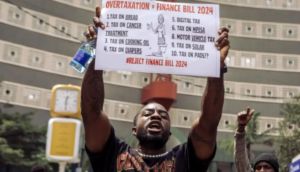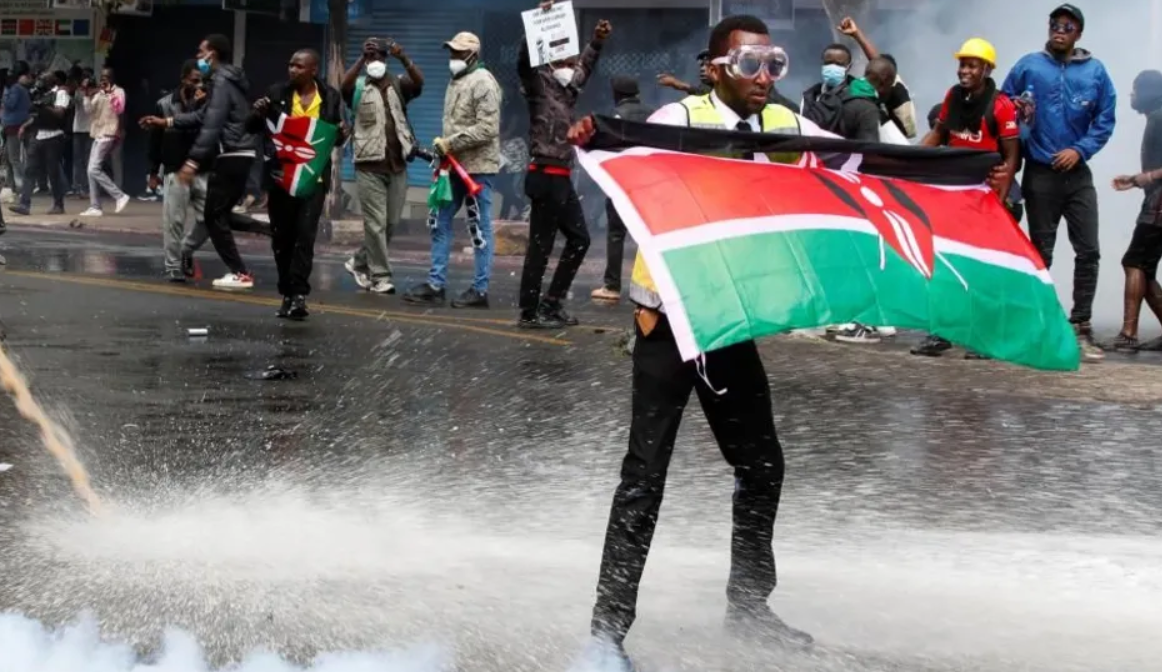Protests Erupt Across Kenya Over Tax Bill: A Controversy Analysis
A new budget law has sparked widespread outrage across Kenya, prompting citizens to go to the streets in protest. In an already difficult economic context, the contentious law has become a point of public outcry due to its proposal of multiple unpopular tax measures.
The Origins of Discontent
Protesters in Kenya are mostly opposed to a budget law that they see as unfairly hitting both individuals and companies. Protests spearheaded by young people have swept through big cities in response to the proposed measures, which have resounded with a populace already struggling with heavy living expenses.
These demonstrations have had consequences, albeit being mostly nonviolent. At least one person has died, hundreds have been injured, and many more have been arrested, according to reports. Human rights groups and attorneys have been among the first to denounce the crackdown as an overreaction to what they see as lawful protests.
Disputed Plans and Government Give-and-take
There were a number of things in the initial bill that made people angry right away:
1. Taxing Essential Goods: Proposed bread sales taxes of 16% and cooking oil duties of 25% were heavily criticized for unfairly targeting necessities.
2. Tax on Financial Transactions: Monetary transaction tax increases have prompted worries about how they may affect people’s day-to-day spending and savings.
3. Tax on Vehicle Ownership: Auto owners were considered to be unfairly burdened by a proposed annual tax of 2.5% on vehicle value.
4. Eco Levy: Some people were against this tax because it could make necessities like sanitary napkins and diapers more expensive. It was intended to target products that contribute to electronic waste.
Some of these plans have been withdrawn by the administration in reaction to public protest. This compromise, however, has failed to assuage the increasing unhappiness of Kenyans.

Protesters argue that Kenyans are overtaxed, which is disputed by the president
Measures That Remain Contentious
Although the government has changed its stance on some topics, there are still parts of the bill that people are not happy about:
1. A 16% tax on goods and services earmarked for the construction and equipping of specialized hospitals with a minimum of 50 beds has sparked worries on the possibility of increased healthcare expenditures associated with critical illnesses.
Imported goods prices are anticipated to be affected by the proposal to increase import taxes from 2.5% to 3% of item value.
3. Fuel fee Increase: There is ongoing debate over a proposed increase to the road maintenance fee that is levied on fuel.
The Bigger Picture: The Anger of a Nation
The recent demonstrations are about more than simply rejecting a certain bill. They are the climax of long-simmering dissatisfaction with what people see as economic hardship and excessive taxes. It seems like the administration has never paid attention to the problems faced by many Kenyans.
The government of President William Ruto has sought to rationalize the tax hikes by drawing comparisons to other African countries’ tax rates. A public that is feeling more and more pinched by economic circumstances, however, has not bought into this reasoning.
Citizens’ already-present financial burden is exacerbated by the present finance package, which follows last year’s similarly unpopular tax changes. Instead than putting a heavier financial strain on average Kenyans, protesters are demanding that the government cut waste, corruption, and expenditures.
The Future: Requests for Conversation and Change
The need for serious communication between the government and the people is becoming more and more demanded as the demonstrations drag on. President Ruto has taken note of the protests and has pledged to meet with protest leaders, including many young people. There is still skepticism regarding the authenticity and possible results of these discussions, though.
This issue shows how hard it is for governments to make money while still having the support of the people. As Kenya faces these difficulties, the country and the world will be waiting to witness the outcome of the tension between fiscal policy and popular opinion.
Kenyans are still vocal about their disapproval of what they perceive as an unfair financial burden, therefore tensions are high in Nairobi and other big cities. If the government and its citizens are unable to strike a settlement in the next days and weeks, the impasse will only get worse.
The public’s voice and responsive government’s role in molding national policy are both highlighted by the unfolding events of this crisis. What happens in this showdown might have long-term consequences for Kenya’s politics and economy.



















